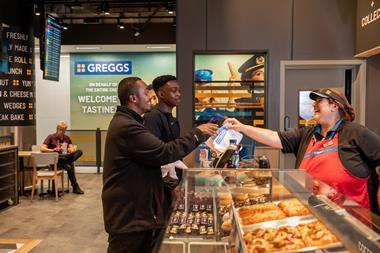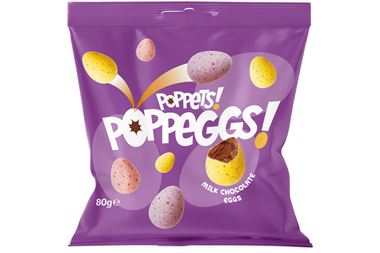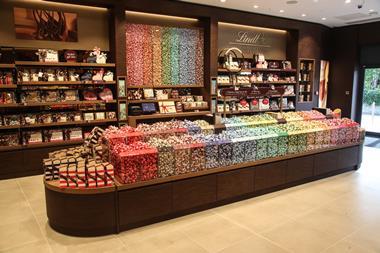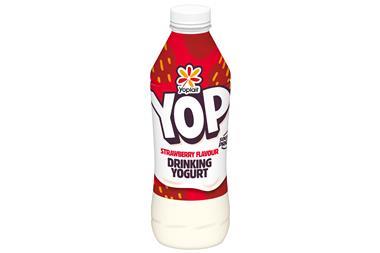n Headache with excess stock?
One company has come up with a solution with an ancient practice at
its heart. Ed Bedington reports
Whether they'll admit it or not, most companies have faced the problem of excess stock at one time or another. Whether it's the hot new product launch that failed to capture the public imagination, the old favourite suffering from a brief downturn in popularity, or simply a change in operations, if the products are not shifting fast enough, warehouses can start to bulge at the seams.
So what's a company to do? Does it sell the product on at a discount and risk damaging marketing plans, or should it bite the bullet and write off the costs?
How about taking that excess stock and trading it in return for the equivalent value of advertising or services?
That's the thinking behind MRI International, a leveraged trade company, or modern day barterer.
"We help right wrongs," says ceo Simon Lee. His company acts almost like a troubleshooter, coming to the rescue of manufacturers and companies facing sometimes serious problems, turning potentially heavy loss situations around.
Put simply, the company takes a client's excess stock, paying full value in the form of trade credits. "We will always try to pay the full book value for any products, up to four times the true cash value," says Lee.
That product is then sold on, either through the channels specified by the client or an entirely new route. Quite often a deal with MRI can open up brand new trade routes a company had not even considered before.
But it's not always simple, according to Lee: "There are brand sensitivities that need to be observed. We need to sell the products in a way that fits in with the client's needs. They set the guidelines and we work to their brief.
"This means a company retains control of its products through those restrictions, so the moment they sell it on, it is not going to end up damaging their marketing operations in any way."
After all, the last thing any company wants to see is its stock coming back to haunt it in its normal trading channels at knockdown prices.
The trade credits it gives in return have to be used to pay for services from MRI, ranging from advertising to hotel conferences. However, companies can only part pay in credits, making up the rest in cash, at a level agreed from the start.
For example a company that wants £100,000 worth of advertising from MRI would have to fork out 70% in cash and 30% in credits.
MRI's remarketing director David Levin adds: "It all sounds very complicated but it's like going back to how trading started with barter systems."
To help it in remarketing stock, the company has developed its own private label which is used extensively in Eastern Europe. This allows it to take a well known product and repackage it for resale reducing the possibility of causing any harm to an established brand image.
Wine producer BRL Hardy is one company that has benefited from the MRI treatment.
Logistics manager Robert Clark says it found itself with a surplus of stock: "There's people within the drinks industry whose business is buying up excess stock and you know you're going to get rock bottom prices, but MRI offered us a good way to get value for our products."
But he says there are good and bad points with the MRI system. "Yes, you can get full value, but you can only use the trade credits as a percentage of the total deal. You need to remember that if you are given £200,000 in trade credits, to redeem those, you'll have to spend something like £2m in cash as well. You've got to think, can you use all those trade credits?"
But overall Clark says they were impressed by the company's operations and flexibility and would probably use them again. Lee says about 85% of its clients repeat business.
Overall, MRI offers companies a different solution to tricky problems and Lee says its model can be applied to almost any product or industry, from a tin of beans to mining equipment.
It has helped a number of companies which have been in a sticky situation. On one occasion a pickled onion manufacturer's attempts to launch a new product fell flat when it failed to appeal to the UK palate. MRI took the product, repackaged it and opened up a new channel for the company in Hungary where the product went down extremely well.
On another occasion, a bubblegum producer needed to get rid of excess product but brand restrictions meant Lee and his team were unable to sell the product anywhere in the US or EU.
"We eventually discovered the product had been sold in Moscow once upon a time, but the channel had lapsed.
"We managed to re-open that channel and there's now a real taste for that product. But it was a lot of hard work. Reopening a channel was tougher than simply finding a new one." n
{{FEAT. GENERAL }}
Close menu
- Home
- Retail & Wholesale
-
Products & Suppliers
- Back to parent navigation item
- Products & Suppliers
-
Product Categories:
- Back to parent navigation item
- Product Categories:
- Alcoholic drinks
- Bakery
- Cereals & breakfast
- Cheese
- Chicken & poultry
- Chocolate
- Confectionery
- Crisps, nuts & snacks
- Dairy
- Fish
- Fresh produce
- Frozen
- Household
- Meat
- Own Label
- Sauces & condiments
- Seasonal
- Soft drinks
- Vaping
- Vegan & plant-based
- World foods
- Suppliers
- People
- Reports & Data
-
Topics A-Z
- Back to parent navigation item
- Topics A-Z
-
Popular topics:
- Back to parent navigation item
- Popular topics:
- Cost of living crisis
- Crime
- Deposit Return Schemes
- Finance
- Government & Regulation
- Health
- Inflation
- Loyalty
- Marketing
- Mergers & Acquisitions
- New Product Development
- Sourcing
- Supply chain
- Sustainability & environment
- Technology
- Ultra Processed Foods
- Vaping
- A-Z all topics
- Content by type:
- Events
- Ask iA (beta)
- Subscribe now
Sign in to comment on this article
Not logged in before? Register for FREE guest access today.
You will be able to:
- Read more stories
- Receive daily newsletters
- Comment on stories
Advert















No comments yet